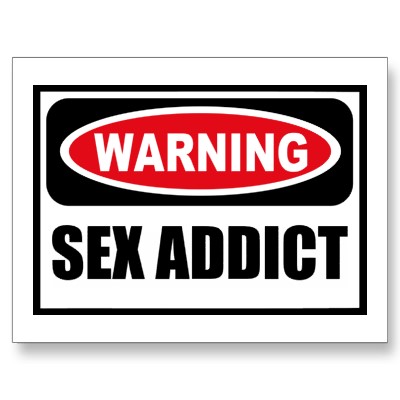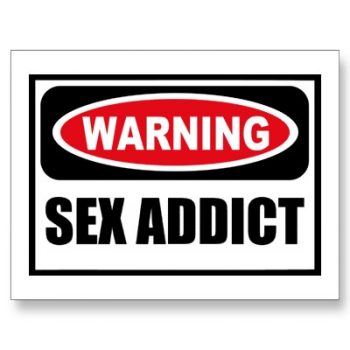“It’s not his fault, he has a disease. He can’t control it. He needs help.” These are the words I’ve heard repeatedly from spouses of alleged sex addicts, as my new book, The Myth of Sex Addiction, is getting increased media attention. Wives of these men sometimes seize the sex addiction label as a way to tell themselves that their husband’s sexual misbehavior’s are not a personal issue. Maybe if it’s a disease, these problems aren’t truly a sign of problems in the marriage, or in the husband or wife. When they call these choices a sex addiction, it’s a way to say that their husbands really aren’t meaning to be selfish, impulsive and destructive, but that their choices and consequences of those choices, are the result of an illness. And illnesses are out of out control, aren’t they?
But sex addiction isn’t a real disorder. It’s not an accepted psychiatric diagnosis, and likely never will be. There’s no evidence that high rates of sexuality lead to tolerance or withdrawal, two hallmark symptoms of addictive diseases. And, there’s evidence that all men have the ability to exert control of their levels of sexual desire, and their sexual choices, if they choose to exert that control.
I’m sorry to give you the bad news, that if your husband is repeatedly violating your trust, choosing to endanger his own health and safety, as well as yours, it is because he is making a choice to do so. Sometimes, that choice, and the level of control over it, happens earlier than we think. Some men describe that when watching pornography, they feel unable to exert control, and turn it off. But, when they first turned that computer on, or chose to go into the room where the computer was, locking the door behind them, did they have control then? When a person drives down the road looking for a prostitute, they have enough control to safely operate a car, unlike they would if under the influence of drugs and alcohol, which affects all behaviors and judgment. When they made the choice to drive home in the way that took them by that corner, did they have control then? At some point in these people’s lives, there are decision points, choice points, things that we sometimes call Seemingly Unimportant Decisions, or SUDs. It can be hard to avoid making bad decisions, from using drugs or alcohol, or even to making unhealthy sexual decisions, when in the heat of the moment. This is why I teach people to identify those SUDs, those early choice points, where they can exert control, and avoid putting themselves in situations where they might be tempted to make bad decisions.
But this requires a significant level of self-knowledge and commitment. And it might not be as much fun or exciting, making good decisions. This is a place where people make choices, about what they want to do with their lives, and what their priorities are. People make these choices, not diseases. One researcher approached me recently, who is conducting brain research on alleged sex addicts, and where early findings suggest that the brains of these men do not in fact resemble the brains of drugs and alcohol addicts. This is contrary to the frequent wild assertions of sex addictionologists, who claim that porn and sex “hijack” these peoples’ brains, and are more addictive than cocaine. Instead, this research supports my hypothesis, that these people are making choices. The forthcoming research suggests that these are men who tend to be very good at increasing their levels of sexual arousal, very quickly. They can put themselves in a sexual situation, and go from 0 to 60, very quickly, and enjoy the heck out of that sexual rush. But the key is that they are making the choice to put themselves in situations where they can experience that sexual arousal, and they are choosing to not exert control over their levels of sexual arousal.
This is the important message, to all those who are struggling with a husband or partner, who is making unhealthy sexual decisions. Your partner has the ability to make better choices. If they choose to. They may not want to though. And that’s a hard, painful thing to hear. Believing these bad choices are the result of a disease may give some comfort, but is ultimately a false sense of peace. If the motivations behind those bad decisions are not addressed, they will continue, with sex, money, parenting, and all the other important decisions that people share in their lives.
I’m not the only one raising these questions and challenges. Lately, I’m invited onto lots of talk shows, where people want to hear from me, and from people out there who are struggling with this in their lives. Do you think your partner is making excuses, even though they have other people saying that they are a sex addict? If so, let me know. Other people might like to hear your story.
One remarkable reader shared this comment with me, that says it better than I ever could. I’ve included her comment in my new book, and hope that it helps you, as much as it helped me.
As the ex-spouse of a “sex addict,” I know when I found out I really, really wanted to believe that it was an addiction he had, partly because I thought it would help make it all just a little bit easier to accept (i.e., he has a problem that he can’t control, that isn’t within his control). However, in the end, he had been right all along about his reasons for doing it: he did it, and did it as often as he could, simply because he could. Learning to accept that you’ve married someone who could be so intentionally careless with your marriage, with your health, with his health, has taken a long time to move through and to move past. But I understand completely wanting to believe it’s an “addiction” over the even more painful truth that it’s not.
http://www.psychologytoday.com/blog/women-who-stray/201202/the-comforting-fiction-sex-addiction








Note to pervs: If your significant other ever calls you a porn addict, don’t deflect by saying, “No, I am a sex addict, if you don’t believe me, then start fucking me more often and you’ll see how little I watch porn.” It just gives them more incentive to not fuck you and makes em more paranoid.
That is my Public Service Announcement for the day.